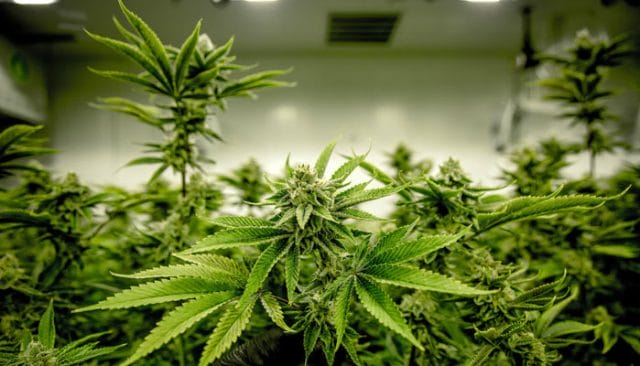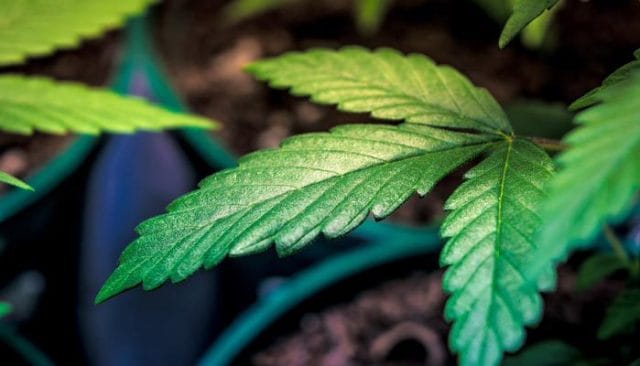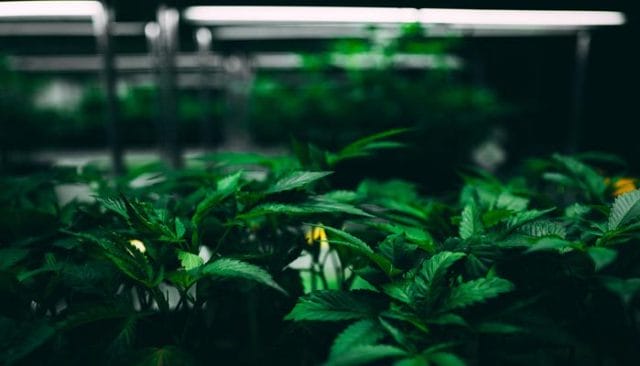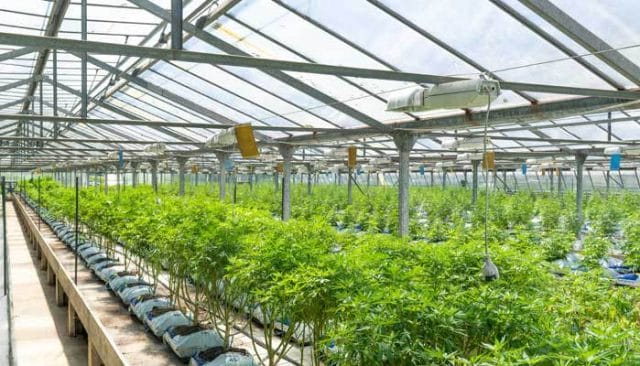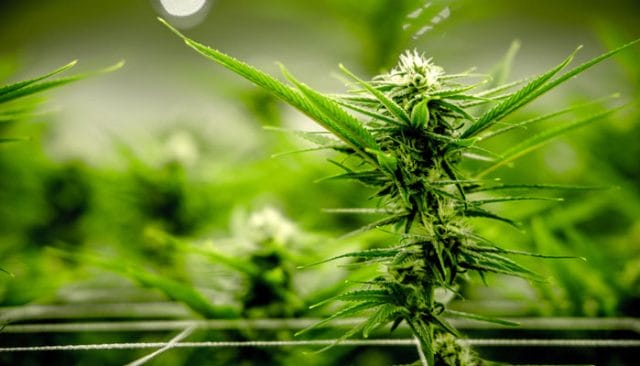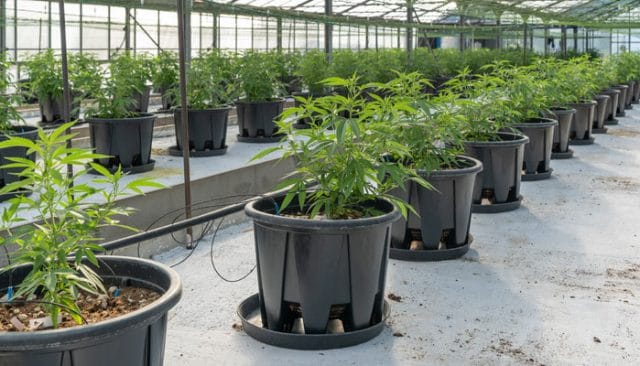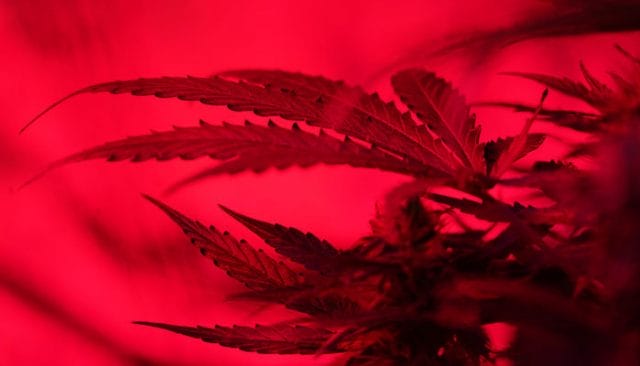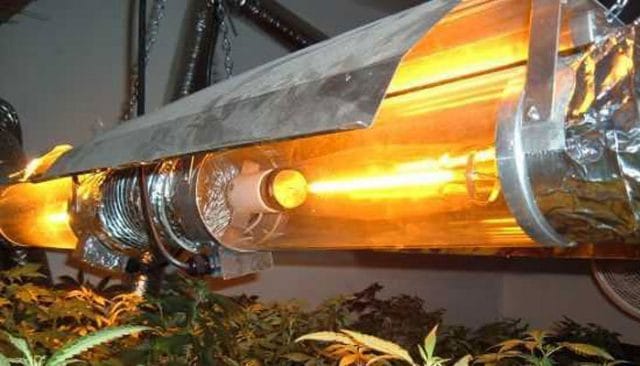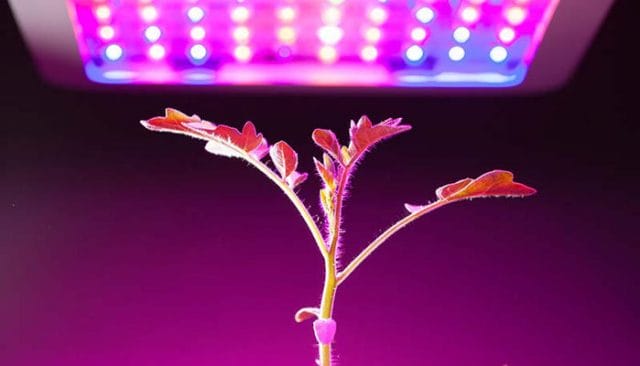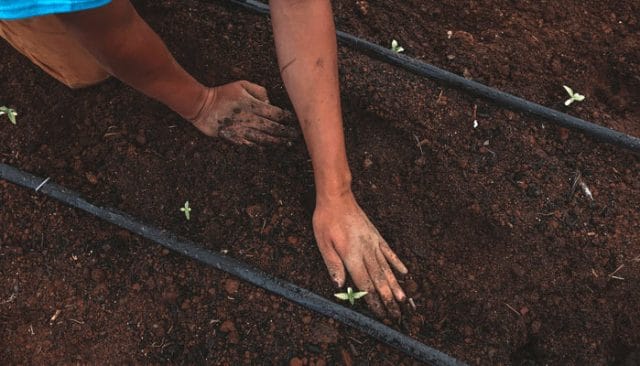You’ve heard about the countless successful nurseries popping up all throughout the U.S. But having your own plant nursery changes when you choose to focus on cannabis instead of fruit trees, and tree seedlings.
You likely won’t find cannabis clones at garden centers any time soon – and for several reasons. Over the past few years, some growers have made the switch from growing trees and crafting potting soil to cultivating smaller plants; namely, cannabis.
Each successful plant nursery is selling plants to retail garden centers and acts as a wholesaler. But these sales come from potted trees, like Japanese Maples and other big plants that many nurseries grow.
While some small growers still want to propagate trees and create potting mixes from cow manure, many are making the switch to cannabis. But starting from the cannabis seed, everything is different.
In this article, we cover what goes into starting a nursery for cannabis, the regulations these businesses must adhere to, and how growing cannabis can be more profitable than selling a thousand trees annually.
Wholesale nurseries make more money with the right financial services! Step by step, Northstar will transform your plant nursery into a successful nursery.
Contact us now to learn how our experts will help you scale your part-time operation into a full-time business.
Cannabis Nurseries Are Different
The small business operations you buy your seed, the way you distribute, and the methods used to save money are all unique to this industry. Even the growing season is different – unless you grow indoors, of course.
Other nurseries can go to garden shows to obtain industry insight. But for a business responsible for growing plants that are still prohibited under federal law, they’re dealing with high value plants that must be grown in accordance with state regulations.
A simple Google search for softwood cuttings will reveal hundreds of nurseries that specialize in these cuttings. However, searching for cannabis seed, clones, soil, and other industry-specific products will solely reveal businesses that have focused their marketing on search engine optimization.
Since cannabis is still federally illegal, “free advertising” is essential. Pay-per-click options aren’t available just yet. However, despite the lack of paid advertising available, SEO can be quite costly.
Regardless of such, it’s important to know that this isn’t the only way cannabis nurseries can advertise. Despite these being tough times for cannabis nurseries to go into business, some websites and publications will allow marketing for nurseries. But these are niche-specific publications as opposed to the more mainstream advertising options.
As you can see, these operations aren’t all about their cuttings and plants; there’s more to this unique industry than meets the eye. But let’s cover more of the considerations you’ll face choosing to grow cannabis instead of trees and other more common plants from seeds.
The Start of a Cannabis Plant Nursery Business
Before starting a business specializing in cannabis seed and clone production, you’ll need a nursery business plan. This is especially the case if you plan to bring in investors.
Planning Your Cannabis Plant Nursery
Your plan and pitch deck should showcase your plant nursery goals, and at the same time, it should offer your strategies. Give an analysis of the market, organizational structure, financial information, and operating plan on your own schedule.
Introduction
Your plan should offer an introduction for your plant nursery. This is where you’ll include an Executive summary and an overview of the market.
Your market overview should provide insight into the market, your target market, how you plan to price your products, and SWOT analysis.
Marketing Strategy
Your marketing strategy should offer insight into the sales forecast. This will include online advertising obstacle outlines, a marketing plan, competition analyses, target customer outline, and sales forecast.
Operational Overview
The operating plan should offer insight into the operations of your plant nursery. You’ll include what you plan to offer, how you plan to offer it, where you plan to grow, product assumptions, a physical security plan, transportation outline, and tracking solution. This is minimal information, and more information is always better.
Considering the products you plan to provide is essential in your plan. Whether you plan to offer clones, seeds, mature or young plants, flower, or something else, you’ll need to list out everything you plan to do as you’re selling all your plants.
Organizational Structure
Think about how your plant nursery should be structured. You’re not running a simple backyard nursery here; you’re starting a nursery for selling plants that are prohibited by the federal government.
You’ll need to determine how you’ll abide by regulations within your organization. This will include security and traceability, as well as training employees to adhere to compliance standards.
You’ll also need to consider cannabis waste removal. How will you remove waste products from the premises in accordance with local regulations?
How many plants can you grow? And how will you transport for retail, package, and process your products?
Consider every aspect of your plant nursery and describe the operations planning and production process. This should include soil, equipment, fertilizers, and other products used in the operation, as well.
Financial Plan
Your financial plan should outline a funding analysis. Where will you get the money for starting a nursery and maintaining its operations?
Your goal here is to provide a breakdown of your expected direct and operating expenses, as well as a forecast for your profits and losses. If you have cash flow, you should also include this statement, along with the main ratios and a balance sheet.
Cannabis Nursery Business Financials
Before you begin propagating plants and creating your secret own potting mixes, you likely want to know more about the financials. What should you expect as you cultivate healthy plants?
The Potential Profits
The profits can be pretty impressive.
Similar to retail nurseries, your business might want to produce clones. One plant is capable of generating many clones. This is why it’s crucial to choose plants wisely.
Your healthy mother cannabis plants should be able to produce between 15 and 30 healthy cannabis clones monthly. However, equally important to note is that this can vary depending on the plants’ health and capabilities.
An operation that’s around 1,000 square feet could hold between 20 and 40 mother plants. If your mother plants produce 15 to 30 healthy cannabis clones monthly, you’re looking at between 300 and 1,200 clones produced each month. You might even be able to get more clones out of a nursery this size.
Small growers commonly sell clones for between $3 and $15 apiece. Thus, on the conservative side of this small business, you’re looking at around $900 to $18,000 worth of clones produced monthly.
The price will vary with several factors, including whether your buyer is purchasing clones in large quantities, the frequency at which you’re selling to the buyer, the demand for your genetics, and more. But if you’re operating as a reputable cannabis grower in California or elsewhere, you should find it easy to sell your clones.
If you’re creating your own genetics, some small growers might even be interested in purchasing a seed (or several hundred) for a personal garden or commercial grow operation.
The Potential Expenses
Profits cannot come without expenses. And if you grow your plants from a seed and sell off the cuttings, it’s important to consider all expenses involved.
Your costs will vary, of course. Some areas are more expensive to own or lease property than others. Then you need to consider your cannabis grow licenses, utilities, marketing, labor, soil and other plant costs, pots, and more.
Cannabis taxes also vary from state to state. For example, if you’re a small grower in California, you’re likely to spend more than a home based nursery in Colorado.
Cannabis-Unique Taxes
Taxes on cannabis plants are important to think about. Cannabis nurseries must tread lightly and abide by all cannabis cultivation, excise, and sales taxes in place. Immature seeds, mature plants, and clones all have unique tax liabilities to consider.
For instance, in California, the following is how you’ll handle taxation:
- Cultivation tax: Cultivation taxes don’t apply to nurseries that sell immature plants, clones, and seeds.
- Excise tax: Immature plants, seeds, and clone sales can be sold to other cannabis licensees. But distributors have to transport cannabis from your business to the other licensees. If you’re selling immature plants, clones, and seeds to a retailer, the distributor will need to collect a 15% cannabis excise tax from the retailer.
- Sales tax: As a cannabusiness operator, you don’t need to worry about sales tax unless you’re selling cannabis items in the retail market. If you’re simply selling cuttings (clones), seeds, and immature plants to cultivators and small growers, sales and use tax won’t apply to your operation. So long as the products grown from your immature plants, seeds, and clones will be resold as part of the cultivator’s regular business operations, you won’t have to worry about sales and use tax.
Choosing the Right Nursery Grow Site
Outdoor Nursery
The right grow site makes a world of difference when operating a cannabis producing garden. A production facility might be better than a retail storefront, especially from a financial standpoint.
As a garden operator, you’ll benefit from having a remote location for your operation. These tend to be more secure, offer logistical benefits, and encourage future expansions.
Depending on your state, you might face restrictions if you plan to produce and open a grow facility. This could mean you’ll need to steer clear of public schools, transit centers, libraries, parks, and places that cater to minors.
Some states require outdoor production facilities to have an established location that’s enclosed by a wall. For example, Washington State needs nurseries to have a physical barrier that’s at least eight feet tall. Other states, namely Colorado, require cannabis growers to grow in a secure, enclosed grow that includes semi-permeable roofing and tall fences.
The Pacific Northwest allows outdoor cannabis production, which is great for plants that are 10 feet tall or more. These areas allow large-scale outdoor cultivation operations, and these businesses will want to get to know your plant nursery from the bare root all the way to the leaves!
Indoor Nursery Facilities
A different type of grower will want to check your indoor plants from the bare root to their leaves; these growers go for quality as opposed to quantity, allowing nurseries to serve exclusively to a premium market as the cannabis industry expands.
The plant material that comes from indoor grows is what makes these high value plants so expensive. And while the costs might rise with an indoor grow, you’ll save because, besides the additional costs for lighting and other materials, you can bypass the commercial outdoor machinery and use a few hand tools instead.
Finding an indoor nursery facility can be a challenge. But if you purchase the land or location, you can bypass landlords that prefer to rent to nurseries that grow trees and shrubs rather than this federally prohibited plant.
Considering the benefits of having an indoor nursery. For starters, you’ll have complete control over everything. This means the humidity, light, and pests are all under control at all times. However, you’ll still need to maintain proper light levels and keep your nursery as energy-efficient as possible.
What You’ll Need for an Indoor Nursery
Each plant will require extensive care. But if cared for properly, you’ll earn a nice living working for your nursery.
If you’re new to the cannabis space, you’ll need to start with the basics. This means gaining some insight by performing some research in accordance with the seeds you plan to grow.
Depending on the strain, you’ll need to adjust the grow to its needs. Some seeds might do well with more humidity, while others will need dryer air to guarantee top-quality cuttings.
A greenhouse-specific HVAC system could also be a good investment for your indoor plant grow. These are perfect for closed nurseries and ensure your facility maintains the necessary grow conditions for healthy plant production.
Pots are also crucial for your garden. While pots might not seem so important if you have an outdoor grow, your choice for pots in an indoor grow makes a world of difference.
You’ll need 5-gallon pots to hold your plants. Since the roots expand rapidly, you’ll need plenty of room. Having larger pots for your plants ensures they have enough space to grow their root systems. But in some cases, grow bags will work for your plants.
Some high-end cultivators use permeable concrete pots with soil. This allows natural water recycling. However, if you’re interested in collecting some of the water from runoff, wooden pallets can work.
You’ll also need to consider the lights. Climate and light control are essential for the cannabis plant, regardless of the strain. This is especially true for those growing indoor as opposed to outdoors.
Energy-efficient lighting will ensure you get your dollars worth for energy consumption. The lights do all the heavy lifting to provide each plant with the energy they need to thrive.
More on Lighting & Electrical
Electricity costs can get out of hand for cannabis growers. This is why it’s essential to think about the lighting and electrical costs for your business. The two main options are HPS and LED grow lights. Here’s a bit more insight into each of these options:
HPS Grow Lights
HPS grow lights are the more affordable option. These generate a lot of heat, and the ballasts are usually installed in a separate room. While it’s true you’ll increase your energy costs with an HPS system, you can also save money by avoiding installation costs for ducting systems.
Another vital component when looking at indoor cannabis grow lights: is light penetration. High-quality light penetrates deep into the plants, helping to form potent buds with fewer leaves; this ultimately means higher yields and better nursery business practices for your indoor operation.
LED Grow Lights
The LED choices for growers have actually been around for quite some time. But they’ve only recently become a popular choice because of their efficiency compared to other bulbs on the market today. For anyone interested in saving energy, these are a great option.
LED grow lights are also small in size and can be used for specific plants that require more humid conditions than others. Also, the LED growers allow you to control your specific yield time when growing cannabis indoors as well.
Ventilation Systems
A good ventilation system is one last consideration before setting up an indoor nursery for cannabis.
Cannabis requires high-quality air circulation. And filtering systems ensure that only clean air reaches your plant’s desired environment.
Poor ventilation will leave cuttings exposed to pests, mildew, mold, or even other environmental contaminants, which may destroy potential yields by devastating the plant growth cycle if left unchecked.
A bit of research regarding airflow and filtration will help you to set up the best possible environment for your indoor cannabis grow.
Growing Plants for Your Nursery Business
If you’re planning to grow cannabis plants and sell them as a nursery for extra pocket money, you might not be in the right business. While this could work for a small town operation interested in selling trees, flowers, and plants in small pots, cannabis is a different breed.
Growing cannabis as a nursery is expensive. You’ll likely need to test your plants’ genetics during a full bloom to have insight for the people interested in your seeds and cuttings. Your whole process will need documentation, including photos and videos. This is where you’ll get the information you need to show interested growers.
Depending on the grower, each is looking for something that appeals to them. For instance, some would prefer to grow short and wide plants. But for those with limited space, tall and thin plants might be the preference. With this in mind, you’ll need to grow a seed from each strain to maturity to offer growers an example of the final product. Offer growers a certificate analysis to showcase the quality of your end product, too.
It’s also important to keep your nursery clean and safe. You want interested growers to be able to trust that you’ve treated your cuttings with care.
Your cannabis plants should always look healthy, so it’s crucial to properly plan out your nursery and make sure all of the growing conditions are ideal for the cuttings and seeds.
Concluding on Starting a Nursery for Cannabis
Whether you’re just now breaking into the cannabis space or have been operating for a while, you’ll need to gear up for the competition.
Because there’s easy access to information online, it’s become easier than ever before to start your own business specializing in plants, seeds, and clones. But keep in mind that cannabis is still federally illegal. You might need legal advice about how to approach this market without running afoul of federal law surrounding marijuana.
Each plant you grow is an investment. If you’re not sure that your grow is the best quality, you’ll need to ensure your customers are happy with their purchases. Maybe consider offering them a small discount on any future purchase if they return for seeds or clones in the future.
If you’re thinking about getting into the cannabis growing business, there’s plenty of information out there to help you on your way. You’ll need a nursery license, as well as a few other permits, but with the right resources, you can have a successful business.
Looking for additional insight to scale your operation? Northstar is here to guide your success!
Contact us now to speak with one of our experts about taking your operation to the next level!
